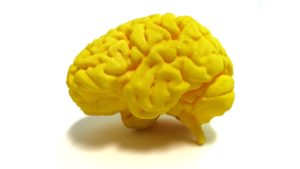Addiction makes changes in the way the brain operates. Some changes are temporary, some take time and some appear to be permanent.
You can get sober in 24-48 hours. You can get clean in a matter of weeks or months. Your body needs that long to get rid of the bad stuff. But these temporary effects aren’t the end of recovery.
In general, it takes 3-5 years for the brain to recover to a state of “mostly recovered.” This is the period of recovery where you shouldn’t be making major life decisions on your own. Your brain is still rewiring itself.
A recovered brain is not an undamaged brain. After 5 years, your brain may be back to full function yet still screwed up. The drugs are out of your system, and you’ve established some strong patterns of behavior, but your brain’s reward system is not in factory-new condition.
Drugs change the brain, perhaps permanently.
An Example
We’ll use cocaine as an example.
Cocaine puts more dopamine in use. It leaves more dopamine in the synapses by disrupting its reuptake (recycling). Instead of going back into the neuron for reuse, dopamine is left out in the synapse. Consequently, with so much dopamine out there, it takes very little more to trigger a neural connection.
The body tries to adjust to the new amount of dopamine present. It normalizes it, making the dopamine have less affect. This is called tolerance.
 As the tolerance increases, users take more cocaine to compensate. Eventually, they are taking very high levels of cocaine just to get as high as they used to.
As the tolerance increases, users take more cocaine to compensate. Eventually, they are taking very high levels of cocaine just to get as high as they used to.
Actually, you can never get as high as you used to (for a given dose). The first time you take a drug is always the biggest impact it will ever have. Like your first love, first job and first car, your first hit of cocaine, heroin, or caffeine is always the largest.
In addition to making dopamine more accessible, cocaine makes the brain want it more. Changes in the reward circuits make the brain more ready to receive cocaine-generated stimuli. It notices more. It notices cocaine or things associated with cocaine more than it did before.
Cocaine increases the level of a certain protein. The level keeps going up and up. It has no tolerance ceiling. It simply accumulates over time. The longer you do drugs, the more of this protein you have.
Technical terms, this protein (deltaFosB) is genetic transcription protein which elevates BDNF (brain-derived neurotrophic factor) which increases the number and complexity of dendrites in the nucleus accumbens.
In every day terms, the more of this protein you have, the more rewarding you find cocaine-related things.
The result: drugs increase your sensitivity to positive reinforcement. Being rewarded impacts you more than it did before. But the only reward that matters to you now is cocaine.
How It Works
DeltaFosB acts as a master control switch for addiction. Once it is turned on, it treats drug-related stimuli differently. It efficiently transcribes events that produce an addictive state. But it also inefficiently transcribes other events. Drug things are more rewarding. Everything else is less rewarding.
The reward system produces strong rewards for drugs, drug-related events, people associated with drugs, and behaviors that lead to acquiring drugs. The reward system is less sensitive to normal reward situations, and even less sensitive to bad drug experiences. You don’t remember the bad stuff about drugs, only the good stuff.
Unfortunately, this switch stays on for months after you stop using the drug. This means that drugs create a change in the brain that is relatively stable. It is not easy to change back to a pre-drug state. And, in fact, you might never get the brain back to where it was before you started taking drugs.
Our friendly little DeltaFosB isn’t out to get you. It is a part of our ability to adapt to the environment. Your body does its best to adjust to changes in supply and demand. When you need more processing in one area, the brain tries to provide it. When you need less, those neurons are thinned or discarded.
DeltaFosB is part of a whole family of transcription factors. Your body tries to create a more efficient system by using these molecular switches to change the expression of genes. The switches increase neural plasticity. More neurons and larger dendritic trees make the brain more efficient. It is more sensitive to some stimuli and less sensitive to others. It is more able to process certain information and less likely to process other items.
DeltaFosB accumulates in the limbic system (the nucleus accumbens and striatum, in particular). It stays in the neurons of these regions for a long time: often years.
The brain doesn’t mind adapting but it is no hurry to reset itself. You might want to reactivate the system again. The brain is like a school system who currently has less students but keeps some school empty buildings “just in case.” The brain prefers stable long-term adaptations.
Your body makes semi-permanent changes in the brain is response to major stimuli. Drugs provide a super-dose of dopamine. It, along with several other neurotransmitters, provides a euphoric effect. But, more significantly, dopamine signals that something is important. It is the pay-attention-to-this neurotransmitter.
Dopamine is activated when we’re under stress. And, yes, under chronic stress DeltaFosB increases in response. But the affects are quite broad. With stress, the whole brain is impacted. With drugs, specific regions of the limbic system are impacted.
With stress, another cellular transcription factor is activated. The CREB protein creates a short-term depression-like feeling. It transcripts emotional stimuli less efficiently, which reduces the impact of emotional stimuli.
In contrast, DeltaFosB creates a long-term change in transcription. It increases the impact of rewards and creates more of an anti-depression feeling.
Conclusion
The important point is that the brain changes its neural plasticity in response to prolonged or chronic patterns of behavior. Many kinds of drugs trigger this response but so does high levels of sex, exercise, and fatty foods. Things the body deems important change the amount of resources the brain devotes to them and the way the brain functions. Compulsive running gets the brains attention. Regular intake of sucrose also changes the brain. These changes provide more acute responses to stimuli, and encourage behavior to make the event reoccur. You get more drug-seeking behavior, more pornography, more fatty foods and more runners’ highs. More compulsive behavior of all types.
Your body was not designed to work well on drugs. You are at your best when clean, sober, and not being compulsive.
